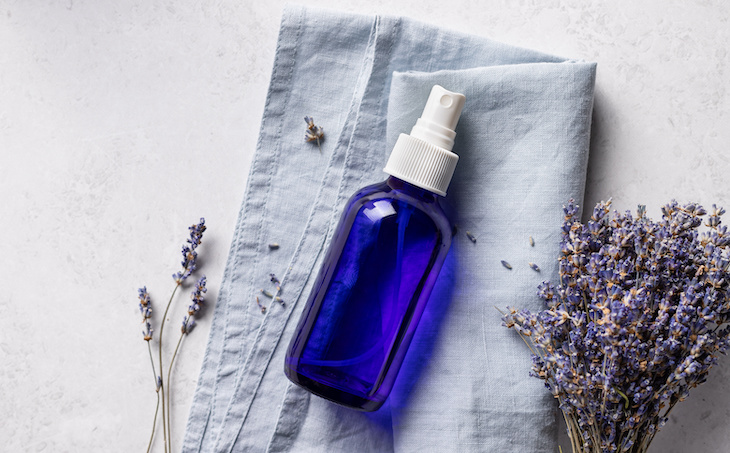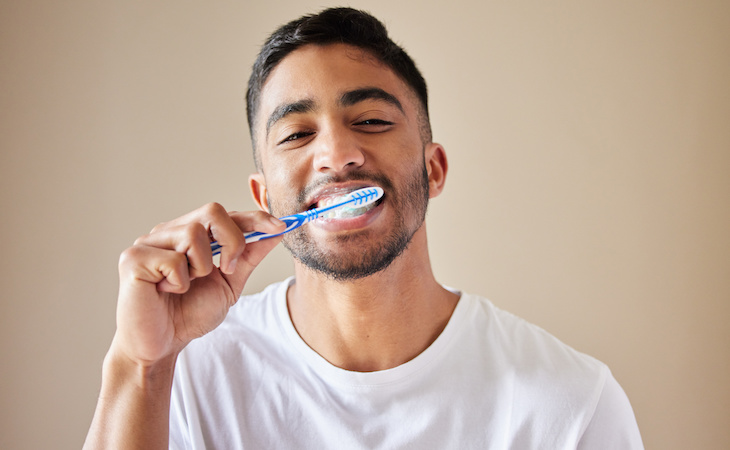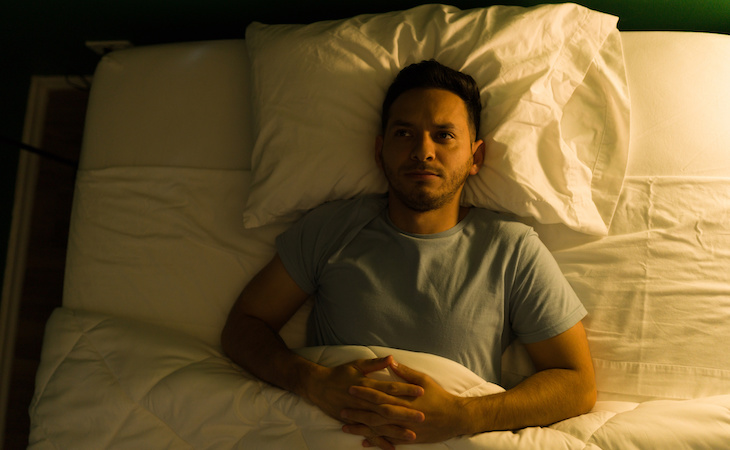There are some health and wellness trends that spread like wildfire—and melatonin is definitely one of them. Chances are, you’ve heard of this supplement that’s practically synonymous with sleep these days. But while you’ve likely seen capsules and gummies that tout this powerful ingredient, you might not be as privy to the latest melatonin formula: melatonin sprays.
Sprays can be easier to ingest than a capsule, but do they really work? Saatva spoke with Shantha Gowda, PsyD, diplomate in behavioral sleep medicine, to find out if you should reach for this product the next time you’re tossing and turning in bed.
What is melatonin?
Melatonin is now commonly known as an over-the-counter sleep aid you can buy just about anywhere. “However, melatonin is a naturally occurring hormone produced and secreted by the pineal gland (a tiny structure in the middle of the brain),” explains Gowda. “Melatonin is released a couple hours before one’s sleep time and helps to regulate the sleep-wake circadian rhythm.”
People sometimes take melatonin before bed to lure the body into sleep when they’re tossing and turning, but it’s not typically necessary. “Our bodies naturally produce and release melatonin so supplementation is not often warranted,” says Gowda.
What is a melatonin spray?
You may have already heard of (or used) melatonin that comes in tablets, gummies, or liquid form (think: with an eye dropper dispenser). Melatonin in spray form is a relatively new product and is “typically sold in 3 mg doses with different flavors such as orange, lavender, and mint,” says Gowda.
Do melatonin sprays work?
Unlike many other health “fads” on the internet, the use of melatonin has actually been widely studied. Studies show melatonin is promising when it comes to treating jet lag and insomnia in otherwise healthy adults. However, it hasn’t been shown to improve restful sleep in shift workers (i.e., those who need to wake up and fall asleep on a schedule that doesn’t match the body’s circadian rhythms).
Another study that looked at the efficacy of melatonin sprays vs. tablets found that taking melatonin in a spray form delivers a higher concentration of melatonin and allows the body to absorb it faster than a tablet form. If you’re in a pinch and melatonin typically works for you, then this might be a great alternative to swallowing pills or chewing gummies.
“The evidence for melatonin supplementation is strongest for the treatment of jet lag and other circadian rhythm disorders such as delayed sleep phase disorder (when people who are often called “night owls” have difficulty with a more delayed bedtime and wake time than what is considered normal),” explains Gowda. “However, many people report improved sleep when taking melatonin,” she says.
Gowda says that since melatonin sprays are often paired with relaxing flavors like orange, lavender, or mint, using them can help to create a bedtime ritual of sorts—which may be able to help users fall asleep faster.
“The act of using melatonin spray may help to improve sleep in and of itself by relieving the stress and worry associated with falling asleep,” adds Gowda. “More research is necessary to understand the full scope and effectiveness of melatonin sprays. It is important to consult with your doctor before using any form of melatonin.”
FAQs
What does melatonin spray do?
Melatonin sprays administer melatonin, the sleep hormone, into the body. They work at a faster absorption rate than gummies or tablets.
Is melatonin spray effective?
Melatonin spray may be effective at helping you fall asleep. However, more research still needs to be done. It’s important to speak with your doctor before using any form of melatonin.
How much melatonin spray should I take?
You should always follow the instructions on the package of the melatonin spray you’re taking and consult with your doctor if you’re thinking of beginning a new supplement regimen. Generally, the dosage is one spray that contains 3 mg of melatonin.
How long does it take for melatonin spray to work?
“Melatonin sprays, similar to other melatonin supplementation, are typically consumed 30 minutes prior to bedtime,” says Gowda. “When using melatonin to treat circadian rhythm disorders, a very small dose several hours before bedtime is found to be most effective.”
Do natural sleep supplements work? We rounded up the best natural sleep aids and what you need to know about each one.








